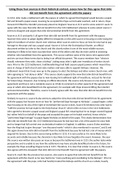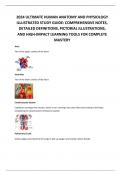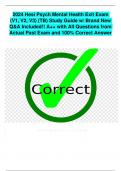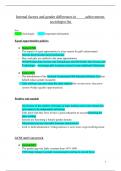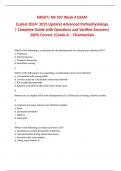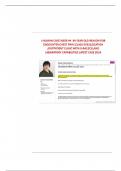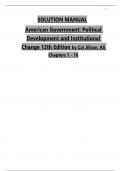Essay
"Using these four sources in their historical context, assess how far they agree that John did not benefit from the agreement with the papacy" Model Essay
- Module
- Unit 1 (Y103)
- Institution
- OCR
A model, A grade 30 mark essay analysing historical sources and assessing whether King John benefitted from the 1213 Settlement
[Show more]
